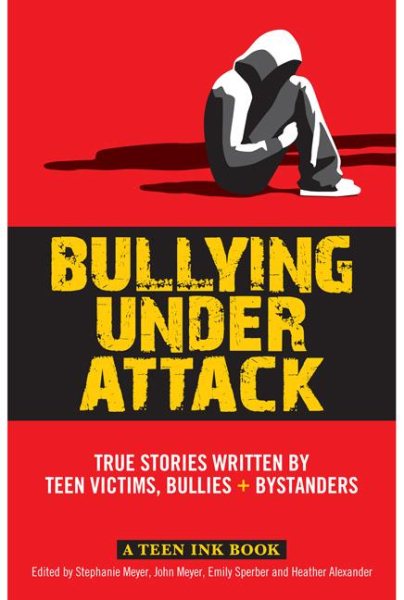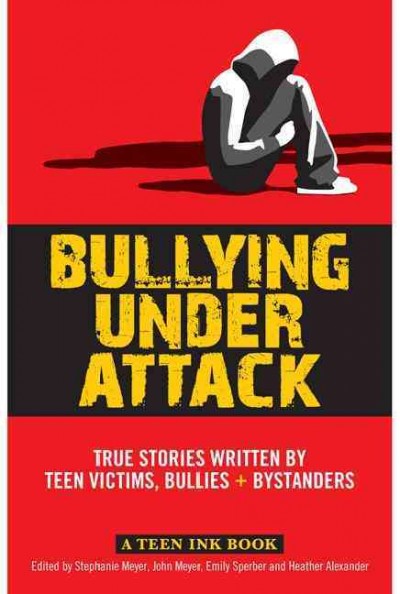
Bullying Under Attack is an exceptional collection of essays, written by teens, that present a multifaceted, real-life picture of bullying from all of the players in this drama: the bully, the victim, an the bystander. Indeed, I found the bystanders’ perspectives to be the most compelling and the clearest voices if we can possibly hope for change. Edited and compiled into loose themes, these honest essays take an unflinching, and ultimately hopeful, look at contemporary teenage life. As all good YA literature does, these real experiences, so succinctly shared, allow readers to find themselves in these pages, know that they are not alone, and view their own experiences in a wider, more meaningful context. This book should be on every middle school and high school bookshelf, where its message and meaning can be shared, absorbed, and discussed.
I had thought to share just a few powerful insights from the teen writers in Bullying Under Attack; although these below, culled from many others I marked throughout, are more than “a few”, each one has been resonating in my mind since I finished the book and seemed deserving of mention here:
- “Teenagers live in a world of false assumptions and exaggerated criticism. All we targets can do is find the strength to shield ourselves from the words. We toughen up our rhino skin until the bad stuff can’t penetrate, and just lumber on.” (52)
- “Sometimes changing a bully is difficult and even impossible. But if you don’t try, those who are bullied will never know how much you care, and those who bully will continue to think their actions are acceptable. You can choose to remain a silent bystander, or you can take a stand to defend others. It’s up to you.” (89)
- ” I don’t speak. I don’t try to advise her. I don’t tell her everything is going to be okay. She just needs someone to listen.” (118)
- “Bullying by friends is insidious because it’s so hard to recognize. Her manipulation was seamlessly integrated into our friendship. Bullying isn’t always a fight over lunch money or jokes about someone’s clothes. It can be as subtle as instructing (instead of asking) a friend to wait by the lockers, or criticizing her for sitting at a different lunch table. When you start to do things because someone is telling you to and not because you want to, there’s a problem. These may seem like little things, but in reality, this kind of controlling can be damaging.” (120)
- “I suppose if I were to shed the guise of a bystander, I would be a middling-bully. I never seek to hurt someone, but I allow them to be hurt as long as it doesn’t affect me. I am a potential victim. I have to watch out.” (140)
- “Now that I look back and reflect, I understand that my issue was one of power, domination, and ultimately control. Control is something I’ve always felt I lacked in my life. Control over my surrounds, control over my family life, and control over myself.” (175)
- “Nothing is more important than a friend in dark times. You can be the one who helps someone find strength.” (189)
- “Bullies look for excuses to justify their actions…I often told myself and my friends ‘He’s so annoying, he deserves it,’…I can remember only one time that a friend confronted me about something I had said. As usual, I blamed the victim. … Bullying allowed me to feel powerful…in the cafeteria, surrounded by my peers – my equals – I found a way to get attention, raise myself above others, and feel good about myself.” (210)
- “We may not be able to stop others from being mean. Teenagers are quick with an unkind word, no matter how many bullying seminars they are made to sit through. However, insecurity and self-loathing are within our control. In order to beat bullying, we must stop the bully inside our heads.” (214)
Posted by Cori


In these days of Common Core State Standards, this looks like a good non-fiction book to pair with fiction!